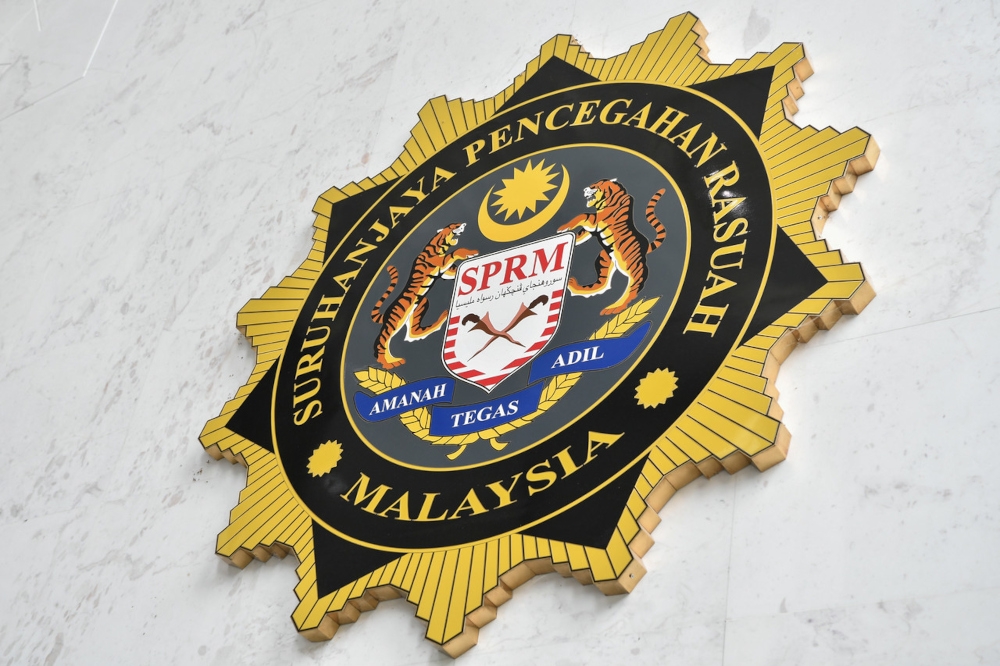APRIL 15 ― Kassim Noor Mohamed’s “Of hypocrisy and contradictions” curiously did not make reference to the “leaked” Malaysian Anti-Corruption Commission (MACC) letter addressed to the chief justice that went viral and which was then released to the press containing a purported “finding” or “view” by MACC that Justice Mohd Nazlan Mohd Ghazali was in breach of the Judge’s Code of Ethics.
Dated February 20, the letter was four days before the Federal Court delivered its ruling on February 24 that the MACC must follow the protocol of first consulting the chief justice before commencing any investigations into a judge of the superior court.
The ruling was delivered by the chief justice who led a seven-judge panel of the Federal Court.
While criminal investigative bodies such as the MACC are constitutionally entitled to investigate superior court judges, and the Public Prosecutor to conduct criminal proceedings against them, such powers must be exercised in good faith and only in genuine cases.

Since the matter concerned the principle of judicial independence, Chief Justice Tengku Maimun reminded criminal investigative bodies that they “are bound to comply with the law.”
The onus on them to comply with the law is even more onerous when it concerns a serving judge of the superior court because not only are they bound by the judges' guarantees of fundamental rights under the Federal Constitution, due process of the law governing their powers and criminal procedure, but also the prohibition against judicial interference.
Judicial independence is a sacrosanct concept. Judges and the entire judicial process must be free to perform their functions freely and independently to arrive at a just and fair decision.
Accordingly, when criminal investigative bodies investigate serving judges of the superior court, they are not to violate the doctrine of judicial independence.
The chief justice went on to say that the scheme of the Federal Constitution requires that when investigating a criminal complaint, the relevant criminal investigative body must first consult the Chief Justice before commencing any investigations into a judge of the superior court.
Coming from the highest court of the country, the ruling is binding.
So, if there were no such protocols for the MACC or its predecessor, the Anti-Corruption Agency (ACA), to follow with regards to any complaints received against a judge, there are now.
So, why leak a letter the content of which has been addressed by the Federal Court?
Let’s come to another “leaked” letter. This time from Minister in the Prime Minister’s Department (Law and Institutional Reform) Azalina Othman Said to former prime Minister Najib Razak’s lawyers containing a repetition of MACC’s questionable “finding” or “view.”
In a letter dated March 20 to Najib’s lawyers, Shafee & Co, Azalina confirmed that Nazlan had breached the code. She said this was based on MACC’s finding dated Feb 20, which the agency had extended to her.
Azalina’s letter should have alluded to the Federal Court ruling that the MACC investigation of Nazlan did not follow protocol instead of confirming that Nazlan had violated the Judges’ Code of Ethics.
While many may have been “uncomfortable” with the protocols cited by Chief Justice Tengku Maimun, arguing that there were no such protocols before, the ruling is by a unanimous seven-judge panel of the Federal Court, not just of the chief justice.
It is a strong coram of Federal Court judges.
Something is not right when the MACC could issue a press statement on April 28, 2022, as mentioned by Dr Kassim, defending its mandate to investigate “public officers” ― which include judges in the definition, as stated in the MACC Act 2009 ― but has been silent since its leaked letter despite the Federal Court ruling on Feb 24.
The MACC will now have to continue to keep silent following Parti Pribumi Bersatu Malaysia (Bersatu) Youth wing members lodging a police report accusing Azalina and the MACC of leaking a High Court judge’s investigation letter.
If the police commence an investigation, it is rightly not right to comment.
It is rightly not right also that the ruling of the highest court of the land is ignored.
* This is the personal opinion of the writers and does not necessarily represent the views of Malay Mail.





















